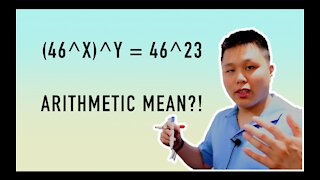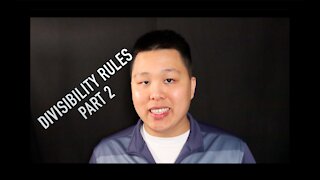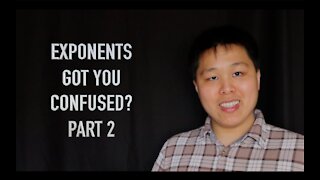Premium Only Content

Prime Factorization - Composite Numbers and Fundamental Theorem of Arithmetic | CAVEMAN CHANG
Prime numbers are numbers greater than one such that the only positive whole numbers you can divide by so that it doesn’t have a remainder is one and itself. Composite numbers are numbers that you can actually divide by some other positive whole numbers. Number are either prime or composite. For composite numbers, you can break them down into multiplication of prime numbers. This process of breaking down composite numbers is called prime factorization. The prime numbers that they are broken down into are called prime factors. In prime factorization, it does not matter how you factor the number, the result will be the same. This is true because of the Fundamental Theorem of Arithmetic. Prime factorization helps us simplify fractions, work with exponents and square roots.
Practice Problems:
Level 1: 147 is composite because it is divisible by 3.
Level 2: 1134/1512 simplified is 3/4.
Level 3: x is 12.
-
 10:08
10:08
Learn Math with Caveman Chang
3 years agoMath Problem Solving Philosophy
30 -
 11:21
11:21
Learn Math with Caveman Chang
4 years agoCaveman Chang RUINS Negative Numbers for Better Understanding
123 -
 5:26
5:26
Practice Math with Caveman Chang
4 years agoPrime Factor and its Sum - Practice Problem | CAVEMAN CHANG
28 -
 5:28
5:28
Practice Math with Caveman Chang
4 years agoPractice with CAVEMAN CHANG - Exponents and Arithmetic Mean (46^x)^y = 46^23
24 -
 4:21
4:21
MyVBdotNetCode
5 years agoGenerating Prime Numbers
25 -
 17:12
17:12
Learn Math with Caveman Chang
4 years agoCaveman Chang SHORCUTS with Divisibility Rules PART 2
491 -
 13:55
13:55
Learn Math with Caveman Chang
4 years agoCaveman Chang EXPLAINS Properties of Exponents PART 2
38 -
 11:23
11:23
Learn Math with Caveman Chang
4 years agoCaveman Chang CHEATS With Associative and Commutatitve Property
18 -
 12:20
12:20
Learn Math with Caveman Chang
4 years agoCaveman Chang PLEDGES to the 7 Rules of Algebra
22 -
 12:02
12:02
Learn Math with Caveman Chang
4 years ago $0.01 earnedCaveman Chang ADDRESSES The Elephant of Algebra (VARIABLES)
32